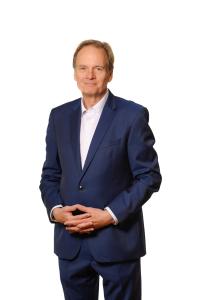Event reports
Constanze Kurz knows about her rights on the Internet. As a representative of the hacker association Chaos Computer Club, she is aware of both the opportunities and threats in the virtual space. "Everyone has the right to privacy - especially on the internet," she said at the beginning of the workshop. The previous evening, she gave a public lecture on campus about the traces left by our data on the network. Already then her position was clear: only a few people take advantage of their rights on the Internet. This is because they were not aware of these rights, and also because not many people know the alternatives to the usual programs used, particularly those programs that protect personal data, said Kurz. Internet regulation is not bad per se, but it can also pose risks, such as challenging the fine line of censorship.
Since the revelations of former NSA employee and whistleblower Edward Snowden, the extent of global surveillance and espionage by intelligence services are now well known. His disclosures triggered the NSA wiretapping scandal in June 2013, in which mainly the intelligence services in the United States and Britain were criticized for picking and storing user data on the Internet. Many of the workshop participants, who came from legal, tech and civil society professions, admitted they feared surveillance on the Internet and debated the balance between censorship and freedom of expression. Even the night before, the lecture audience tweeted partly surprised, partly alarmed with the hashtag #yourdatatrail about the third parties` ability for tapping sensitive information on the Internet. In the discussion among the participants, the topic quickly became clear: how much personal data are we disclosing on the Internet without realizing it. It helps to know technical terms to be able to participate in the debate on effective regulation, advised expert Kurz. This would also be advantageous for lawyers as laws form the basis for the possible regulation or the protection of privacy on the Internet.
Terms like "net neutrality" or "algorithmic discrimination" still seem foreign, but every Internet user necessarily comes into contact with them. While surfing with the aid of a search engine, the previously accessed pages decide the subsequent result when searching the web. And the results would be different for each of us. Constanze Kurz explained the algorithmic discrimination with the help of a pilot project in the US. There, the automated response to emergency calls prioritized certain calls for instance from high-income areas compared to lower ones, disregarding the content of the emergency call.
The workshop also focused on social media which is gaining importance in elections in Sub-Saharan Africa. In Uganda, for example, the government blocked all access to social networks like Twitter and Facebook on election day. Precisely because of these examples, the Director of Media Monitoring Africa, William Bird, saw it as necessary to support a fundamental discussion about the regulation of the Internet and its impact on society. Digitalization has arrived in Africa. It has many advantages, but also negative consequences and just a small minority of users are really aware of those, Bird said. In Germany the public debate has supported this awareness; maybe in Africa it would support the debate about surveillance as well, commented Kurz. It is important to raise the awareness of the whole society around the topic of network security".The main consensus at the end of the workshop was that clear rules about dealing with the Internet are increasingly necessary. In breakaway groups the participants proposed concrete actions, so Internet security can be better guaranteed in the future: Simply worded and clear rules for safer surfing on the net or a public broadcasting spot, which draws attention to the issue were popular suggestions. In South Africa, clear rules are indeed already formulated, but too few Internet users are aware of them - that was the dominant perception in the working groups. The workshop has clarified the issue of security and the protection of privacy on the Internet at least in the minds of the participants, said Bird. This should be a good basis for further discussions in society as a whole.











